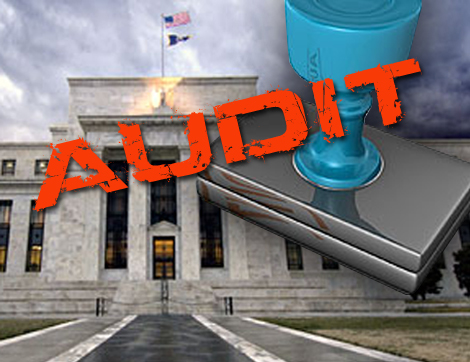
By Mark Anderson —
Officials on the national and regional levels of the Federal Reserve have developed a bad case of the jitters over renewed talk of auditing the Rothschild-owned-and-controlled United States central banking system. They have been lashing out at Kentucky Senator Rand Paul’s revived bill in the newly seated 114th Congress to give legislators more oversight over the Fed.
Though there is support for the measure, the Republican leadership in both chambers is either ambivalent on this matter or they’re “Wall Streeters” who believe the Fed is a key part of monopoly capitalism now practiced in America.
To them, the Fed’s periodic—and secretive—Federal Open Market Committee (FOMC) meetings, where monetary policy happens, must be protected from public scrutiny.
The only House or Senate Republicans who take a dim view of the Fed and talk about it are the few “rebel” party members, combined with a few other followers with a trace of backbone.
Still, Paul—a potential 2016 presidential candidate—has reintroduced his “Audit the Fed” legislation with 30 co-sponsors, including two other potential 2016 GOP hopefuls, Senators Ted Cruz (Texas) and Marco Rubio (Fla.).
What is unprecedented here is that no fewer than three presidential candidates, on the generally pro-big business Republican side, are singing the same tune about deeply auditing the Fed. That could stimulate the ongoing movement to dissolve the Fed.
And that’s mainly why Fed functionaries from Philly to Cleveland are pushing the old mantra that we mustn’t let “politics” interfere with the Fed’s money manipulation.
The proposal would subject the central bank to an audit by the Government Accountability Office.
Regional Fed-bank presidents from around the country (the Fed is a monolith with 12 branches) are decrying the plan, “which they argue could damage the economy,” The Hill, a Beltway paper, noted.
“Who in their right mind would ask the Congress of the United States—who can’t cobble together a fiscal policy—to assume control of monetary policy?” Dallas Federal Reserve President Richard Fisher remarked.
Fed Chairwoman Janet Yellen has already vowed to fight the legislation, while most media claim President Barack Hussein Obama would veto it.
Philadelphia Fed President Charles Plosser noted that financial auditing “already exists” for the Fed, and warned that Paul’s plan would empower Congress “to audit and question monetary policy decisions in real time.”
But only by doing it in real time could Congress and American taxpayers understand a monetary policy that is made behind closed doors at those FOMC meetings, which the president and members of Congress are barred from attending.
It’s time to open the books—all the way. And maybe Congress, upon peering at the Fed’s sacred scrolls, would consider taking back its constitutional duty to coin and issue money “and regulate the value thereof.”
Acting simply as the people’s agent, the government could create and circulate publicly-controlled money interest-free, in amounts that square with the overall quantities of goods for sale, thereby avoiding inflation and deflation of prices.
Readers should promptly survey this unique situation where three GOP senators who are considering presidential runs are talking openly about a Fed audit. And with the Republicans having just captured the Senate, they could use their control of both chambers and partner with anti-trust Democrats, such as Senator Elizabeth Warren (D-Mass.), to pursue a real audit.
When you contact your member of Congress and senators via the Capitol Switchboard (202-224-3121) and locally, stress how this improved opportunity for an audit can and should be intensified into an all-out press to end the Fed.
AFP Roving Editor Mark Anderson is a veteran reporter who covers the annual Bilderberg meetings and is chairman of AFP’s new America First Action Committee, designed to involve AFP readers in focusing intensely on Congress to enact key changes, including monetary reform and a pullback of the warfare state. He and his wife Angie often work together on news projects. Write to Mark at [email protected].


As for the comments made by Dallas Federal Reserve Bank President Richard Fisher, maybe he should read Article I, Section 8, Clause 5 stating that only the Congress shall have the power to coin and create money and regulate the value thereof.
1.Fractional Reserve Banking
2.Federal Reserve Bank
3.Fiat Currency
The Federal Reserve in essence aids debtors and punishes savers.
Inflation aids debtors and harms savers.
Deflation aids savers and harms debtors.